10 Things You’ll Need To Know About Truck Camping
If you have a truck driver’s license, why not try using it for truck camping?
If you’re not ready for truck camping, here’s the good news. Here are some truck camping tips and tricks for beginners to help you get started.
Please grab the wheel, we are about to begin our truck camping trip.
What is a Truck Camper?
An RV that fits in the bed of a truck is called a truck camper. This extra space can be used as a mini home with amenities such as a bed, bathroom and kitchenette. The smallest RVs on the market are truck campers. They are so small that 42 states classify them as cargo rather than RVs.
Within this type of RV, truck campers come in two different varieties:
A slide-in camper = A high-sided, hard-sided RV that sits quite high in the bed of a truck.
A pop-up truck camper = Sort of expand up when you need to use the living space.
If you’re interested in the two different varieties above, check out Marshall Wendler’s edit of What Is A Truck Bed Camper?
Pros and Cons of a Truck Camping
Truck campers are designed to be no more inconvenient to drive, park, or store than a regular truck. They can also camp anywhere, are inexpensive, and even live away from home.
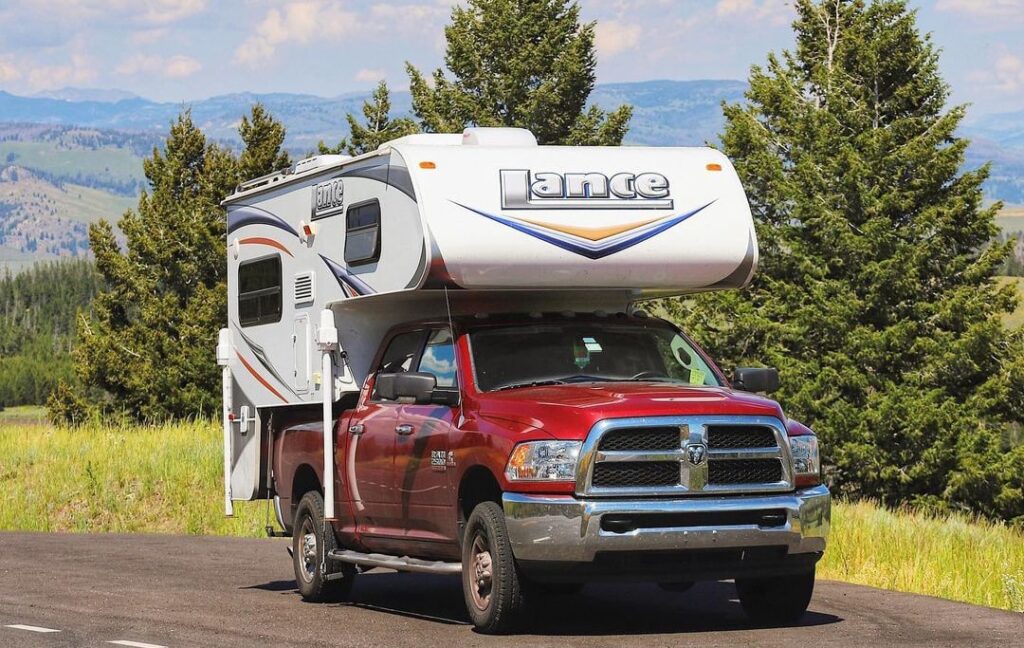
Pros
1. Parking is easy when you’re truck camping. As long as you can park your truck, you can park your camper. This also means that parking is everywhere. If you plan to stay overnight somewhere, and some states have restrictions, know your RV’s state road laws so you can stay overnight legally.
2. Driving is the same as other cars – How difficult are RVs to drive? seems to be one of the top questions I’ve heard people ask about them. You are driving a truck while towing an RV. The only additional challenges you will encounter when traveling with an RV are its increased height and weight. Other than that, it is easy to do.
3. Although they’re the same length as any other car you’re used to driving, turning is no problem, and unlike the Class A motorhomes nearby, the pedals are right where you’d expect them to be. a wonderful option if you want an RV but don’t want to learn how to drive differently to accommodate it.
Nothing is more affordable than a truck camper when it comes to RV alternatives. There are a few reasons for this, but the first is that it costs less because the space is smaller. Smaller items often cost less than larger ones; this is the general rule. You won’t have to pay much to buy a truck camper; pricing will be discussed in a later section. A well-made modern truck camper will probably cost between $3,000 and $15,000.
The low cost of insurance and the lack of registration fees are other factors in the low overall cost of the truck camper. While a truck camper is often the same size as a truck and not difficult to handle, there isn’t much other than weight to contribute to accidents. As a result, little money is spent on insurance.
Vehicles must be registered, yet 42 states continue to classify truck campers as cargo. Unless you live in Idaho, Mississippi, Nebraska, Oregon, Rhode Island, Tennessee, Utah, or Washington, cargo is not required to be registered.
4. In fact, truck campers are smaller than your vehicle, making them easy to store in a garage. Because they are waterproof, they can also be stored outdoors without risk of damage from the elements.
Cons
1. On your truck camping trip, the extra weight of the truck camper is a major problem that prevents comfortable driving on off-road roads.
Every bump you encounter on the road will be accentuated by the extra weight on the vehicle. A larger vehicle can also get you stranded more quickly because it will sink into the mud or snow more quickly. Stay on the paved road that’s designed for your use. Play it safe and stay on the road, because the more you stray from the designated path, the more difficult it will be for you.
2. Some people think they can always leave their truck camper on their trucks. Don’t.
First, hauling extra weight around all the time will result in much worse fuel economy. Second, truck campers can get quite large, making them uncomfortable in many informal settings. Remember to put the truck camper down when you’re not truck camping.
3. You have less space to use for yourself because truck campers are compact. It also means that truck camping can only be enjoyed with limited space, and if it’s camping with your companions, it won’t work very well or at least not comfortably.
You don’t have much storage space on top of the limited sleeping area. This means that if you use them regularly, you will be reduced to the bare minimum. Truck campers, on the other hand, are ideal for fishing or hunting expeditions, where you can bring everything you need and have a comfortable place to spend the night.
4. You must choose the proper truck camper and truck combination. You risk damaging the truck or camper if you don’t. This tends to be one of the main concerns when buying a truck camper, because if you don’t already own a truck, you may want to consider buying a car with an integrated engine; otherwise, you can often get an RV for less money than a truck camper.
Although a truck is typically required for an RV, not everyone enjoys driving a truck around. If this is what you, a truck is undoubtedly necessary for this RV, so the truck camper is probably not the best option for you.

Truck Camping Tips For Beginner
1. The right bed is the key to a good night’s sleep
Nothing is more important than a good night’s sleep. I recommend a six-and-a-half-foot bed for more comfortable sleeping; you can sleep in a five-and-a-half-foot bed, but you’ll have to sleep diagonally.
2.The right campsite with tents
For those who are new to camping research, you can use Google Maps or camping websites to find suitable truck camping sites.
If you’re camping with a group, partner, or solo, remember to bring a tent with a capacity slightly larger than the number of people you’ll be camping with; you don’t want the inside of the tent to look cramped due to the number of people.
3.May not sleep well the first night camping
For beginner campers, the first time you leave a familiar environment for an unfamiliar one, you won’t sleep long on your first night of camping.
4.Get a reliable mechanic
If you have not yet purchased a truck camper or want to upgrade your truck camper, you will need a mechanic to give you constructive advice.
You don’t want a mechanic who just does standard tire rotations and oil changes. You need someone who can advise you on upgrades and how to create a maintenance program.
A truck camper isn’t just your vehicle, it’s a way to build a friendly relationship with your vehicle and learn how to care for it. That’s why it’s important to have a reliable mechanic!
5.Choose a Durable Truck Camper Canopy
How much space you have, where you can go, and how warm and dry you stay depends on your canopy.
There are many different uses for truck canopies, which come in a variety of sizes and designs. While some are designed primarily for storage, others are a little more functional.
Truck canopies are typically constructed of two materials: fiberglass and aluminum.
Fiberglass hoods tend to be more form-fitting. They improve fuel economy by being more aerodynamic and reducing wind resistance.
On the other hand, aluminum tops may not be as sleek, but they are easier to find and may be easier to deal with if you are considering making modifications as you plan your project.
You should look for a truck camper canopy that offers the following:
Fits tightly: You don’t want any gaps for water or cold wind to get through.
Can be vented: Because of the poor air circulation, the car will feel hotter (especially in the summer). Truck campers get hot and uncomfortable. You’ll need a way to keep air flowing throughout.
This is an important one; it is insulated. You want to make sure that your truck camper can be insulated because it can get cold in a truck when you sleep inside.

6.Know how to pack items in the right way
It is important to know that camping in a truck is different from camping in a van.
Vans can fit a lot of stuff in the trunk and can use the boxes to organize the packed camping gear.
On the other hand, truck camping is by far the most basic. With less space to work with and the likelihood that you’ll be traveling over some rough terrain, everything inside the truck is likely to suffer from the rattling.
That’s why it’s important to know how to store things and equipment to prevent collisions while driving. Any less-than-smooth storage area can have a layer of foam or shelf liner on the bottom, and fragile items should be bagged or wrapped in fabric to prevent movement.
Creating an appropriate storage space is also essential.
Group items according to how you use them. For example, keep extra bedding in one place, charging cables for devices and phones near the charging station, and cooking utensils near the food containers.
Sort items into groups based on when you use them. Items you don’t use regularly can be placed in a harder-to-reach location, while items you use frequently should be closer to you.
Provide a special dumping area for items that might get wet, dirty, or otherwise uncomfortable.
7.Be sure to plan your equipment in advance
Before choosing your truck camper design, consider the equipment you will most often take with you and base your decision on that.
Before you begin your truck camper project, consider these questions
What gear will you bring?
What type of cooler do you have?
How will you store your water?
How will you organize your clothing? In bags? In containers?
What kind of layout do you want for your kitchen?
When you start designing and realize that something important isn’t going to fit, asking yourself questions like these will save you a lot of aggravation. It’ll also give you a chance to examine your equipment and replace anything that could be better replaced.
8.Get a Full-Sized Spare Tire
Drop the donut… Do it now. Adventurers should not use the extra tires that come with your vehicle. They are there to help you limp home on the sidewalk. I’ve seen more than my fair share of spare tires blow up while trying to return to civilization, and I’ve given up on the doughnut as a result.
Practically every mechanic in the country has a few old tires hanging around, so just make a few calls and pick up something affordable but trustworthy so you’re covered in case of an emergency. It does not have to be expensive, brand new, or even the same brand and type as the other tires on your vehicle. Simply put, it has to be the same size.
Check it often once you’ve replaced the doughnut with a full-size spare. Changing a tire in the middle of nowhere and discovering that your spare is mysteriously also flat is the only thing worse than trying to travel through the backwoods on a doughnut.
9.Bring a communication device for emergencies
When you’re camping in the wilderness or traveling through the backcountry, peace of mind is important. For this reason, I believe that anyone who spends time outdoors should carry a communication device and an S.O.S. button in case of an emergency.
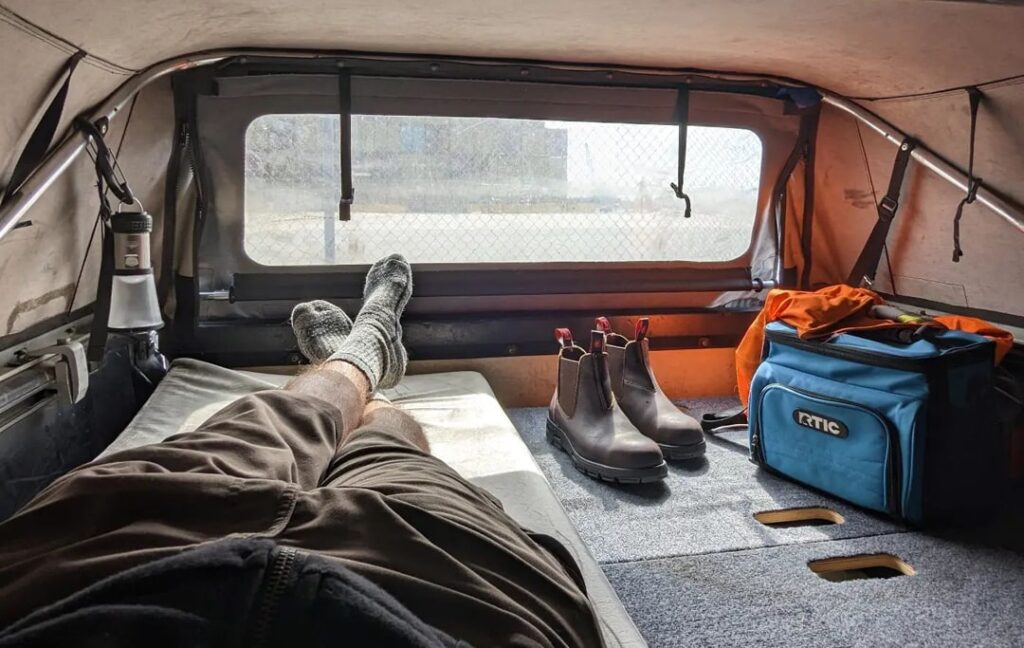
10.Have a Solid Truck Kit
If you have a good selection of truck equipment, you can help people who are in similarly dangerous situations to yourself if or when something goes wrong.
It’s important that the items in your vehicle kit are only intended for use with your truck. The whole point of having a truck kit in the first place is defeated if you start using those tools for other things and increase the likelihood that they won’t be in the truck when you actually need them.
An idea of an excellent truck kit is shown below:
Cable Jumper – Batteries die, it’s a fact of life.
Recovery straps – My buddies and I have gotten out of several sticky situations with the help of a rescue strap and some sturdy D-rings. It’s always a good idea to have the ability to get someone out of a jam, because you never know when they might get stranded.
A shovel that folds – Digging a hole is a really handy outdoor skill. A collapsible shovel is a useful tool to have on hand whether you’re putting out a fire, digging out a stalled car, or digging yourself a puppy hole for a morning poop.
Work Gloves – Work gloves are a great way to protect your hands in the woods for a variety of reasons.
A tool kit – While everyone has a different idea of what should be in a truck toolbox, thinking about it and owning one goes a long way.
A tire pressure gauge – Very helpful both for deflating your tires when off-roading and just for understanding how your tires are doing in general.
Ice scraper – Ice removal without one is a pain.
Extra batteries – Get a good supply of AA and AAA batteries, and only use them in emergency situations. You really want to have them around.
Tarp – You never know when you’ll need a quick shade structure or storm-proof shelter.
Emergency flashlight – Have you ever tried to fix a friend’s flat tire while your headlamp died? I don’t recommend it.
Medical kit – You’ll need a first aid kit sooner or later; it’s not a question of if you’ll need one. Living an active life means being prepared for everything from minor scratches and bruises to more serious illnesses.
Rigging tools – I’m always amazed at how often I need to rig things when I’m out and about. A strong rope, some paracord, a few different types of bungee cords, and a few ratchet straps come in handy.
Blankets – Keeping an emergency blanket in the vehicle that is never removed for washing or other camping-related purposes can provide a safer experience.
A set of fire starters – Starting a fire is a very useful skill in both good and bad situations. Depending on the reason you need to start a fire, a couple of trusty lighters, some lighter fluid, and some kindling can make you the life of the party or a lifesaver.
How to Stay Warm Winter Truck Camping
Some cities are still in winter, truck camping can be an incredible experience, but it also takes some preparation and know-how to stay warm and comfortable. Here are some tips.
- It is important to dress correctly to maximize the functionality of your winter gear. The innermost layer should be moisture-wicking underwear, followed by a fleece, and if the camp temperature is low, the middle layer can be a vest. The outermost layer should be a thick waterproof and windproof winter outdoor jacket.
- It is also important to have a good quality and warm sleeping bag to insulate everything from the truck camper to the sleeping bag.
- If you’re not dry, you’re probably not super warm. You don’t want to go through a night where you get wet and can’t get dry. The cold will seep into your bones. To avoid this damp ordeal, you can set up a dehumidifier, which works very well.
- Drinking as much hot water as possible is another way to stay warm. Staying hydrated also promotes better circulation, which keeps you warmer. The final piece of advice for staying hydrated is to never hold in your poop. Keeping that area warm uses a lot of energy that could be used on your extremities instead. Nature’s call should always be heeded.
Conclusion
We hope these 10 truck camping ideas help you enjoy camping in all four seasons and a little more comfortably. We’d love to hear your truck camping advice, so please leave a comment below if you have any!

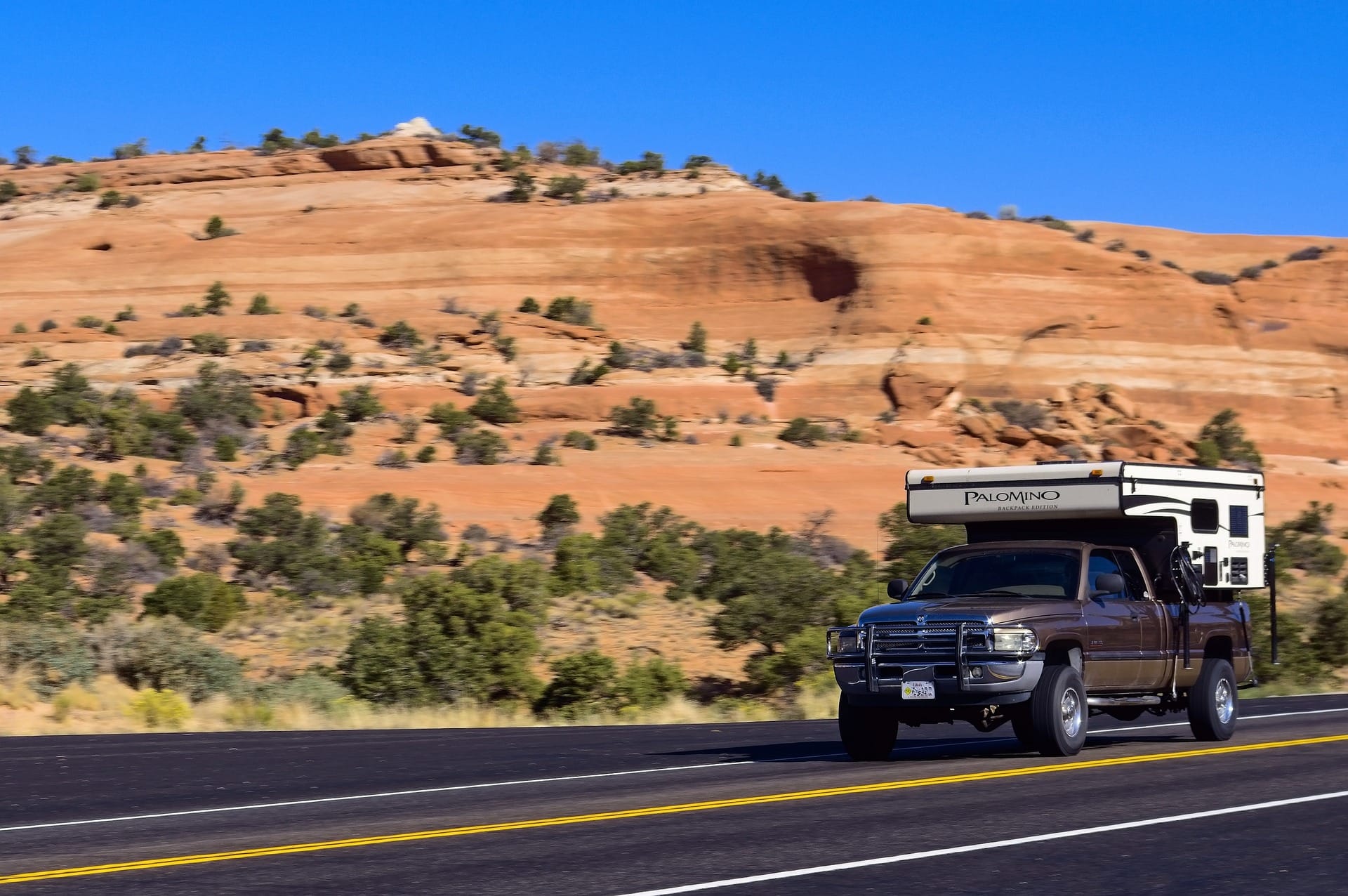
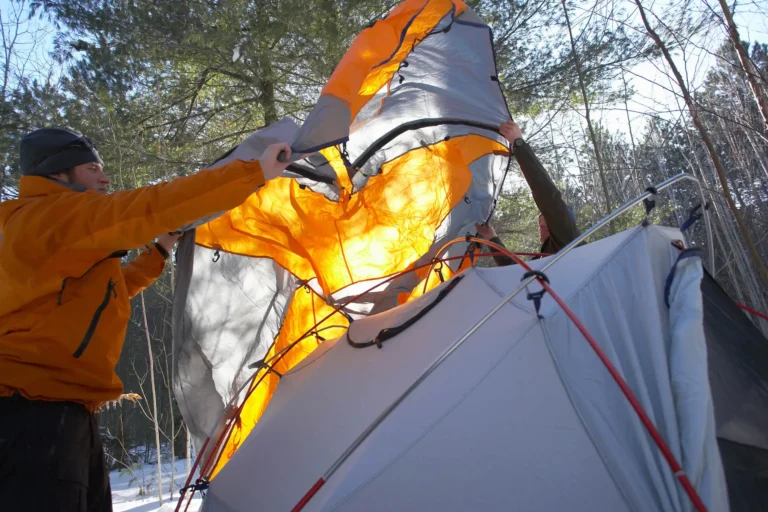
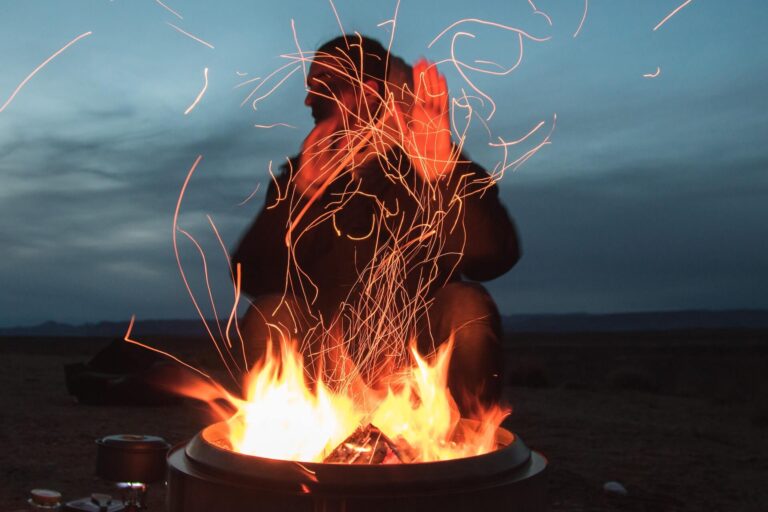

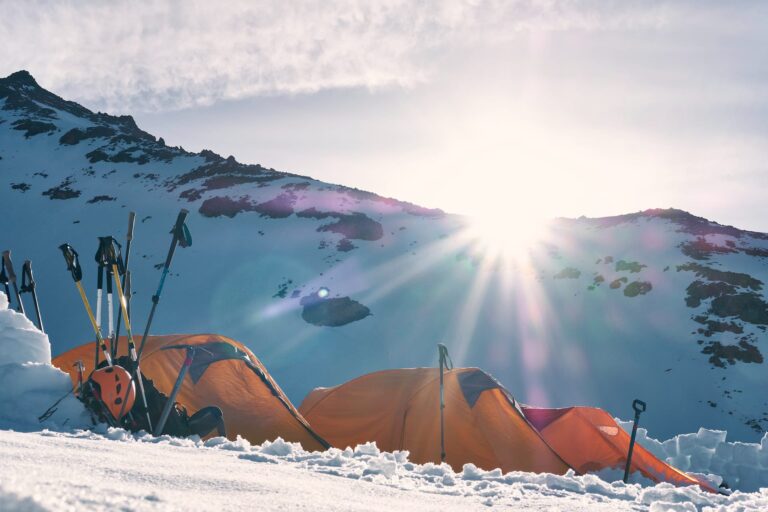
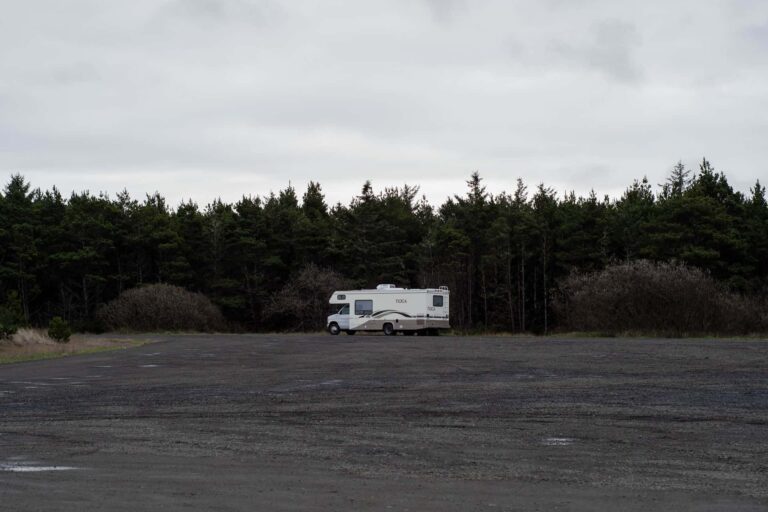
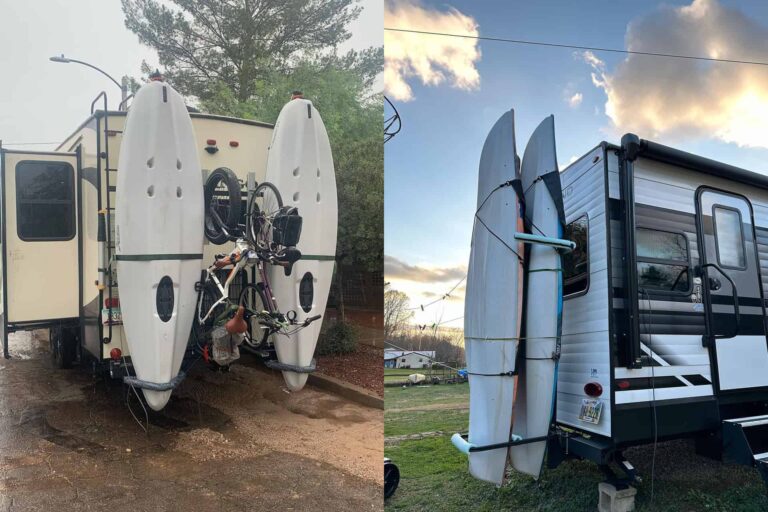
Hey there. I noticed you used one of my pics of my truck camper set up in you truck camping tips.
I thought it was cool to see it . My wife came across it when she was researching some truck camping ideas. That was a pic of my old build. I have since upgraded to a new truck and a better set up.
I was just wondering if you could make the name @gittngo clickable or possibly direct the link to my new youtube channel I have recently started.
https://www.youtube.com/@gittngo/videos
please let me know if this is possible. Cheers !
sure!